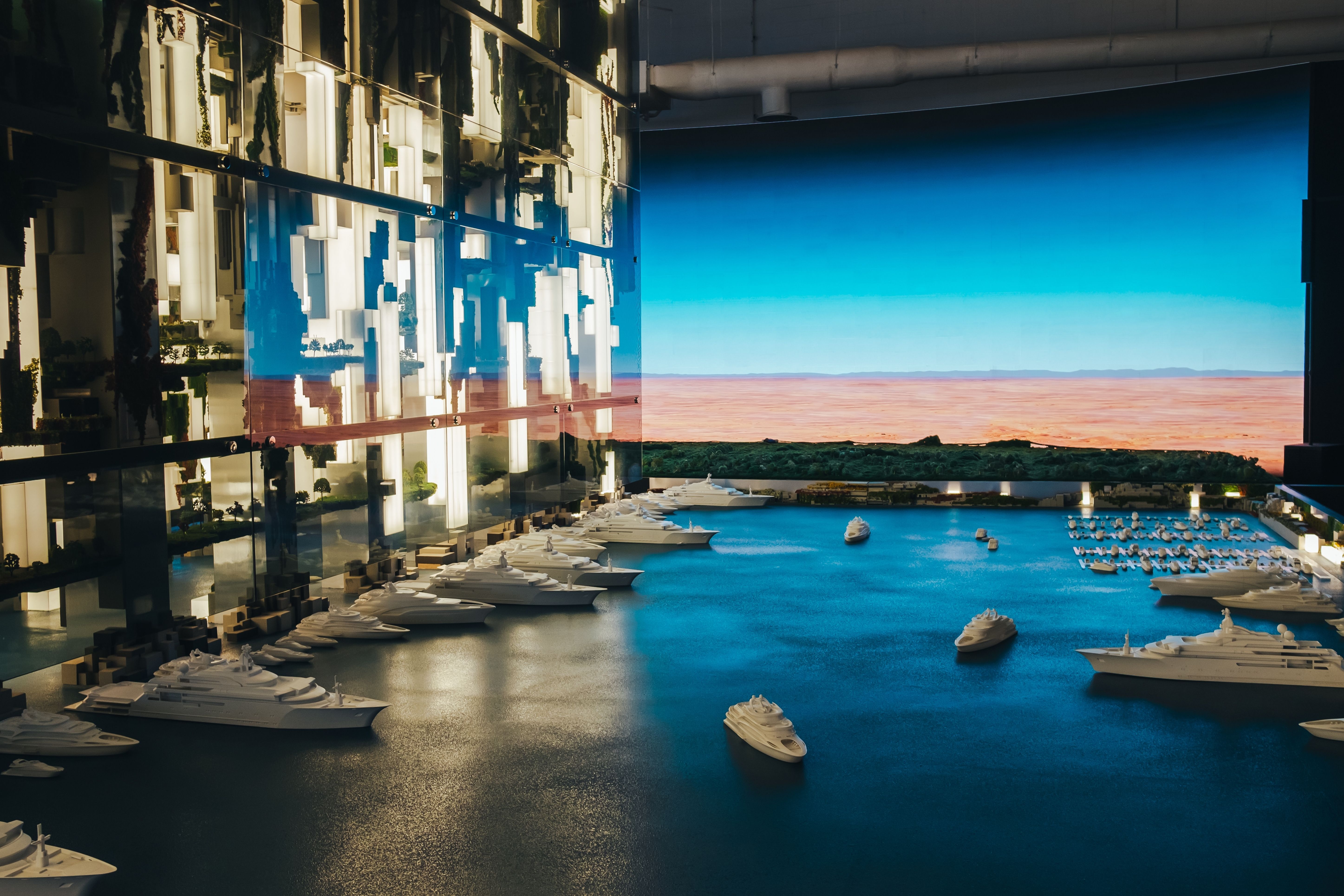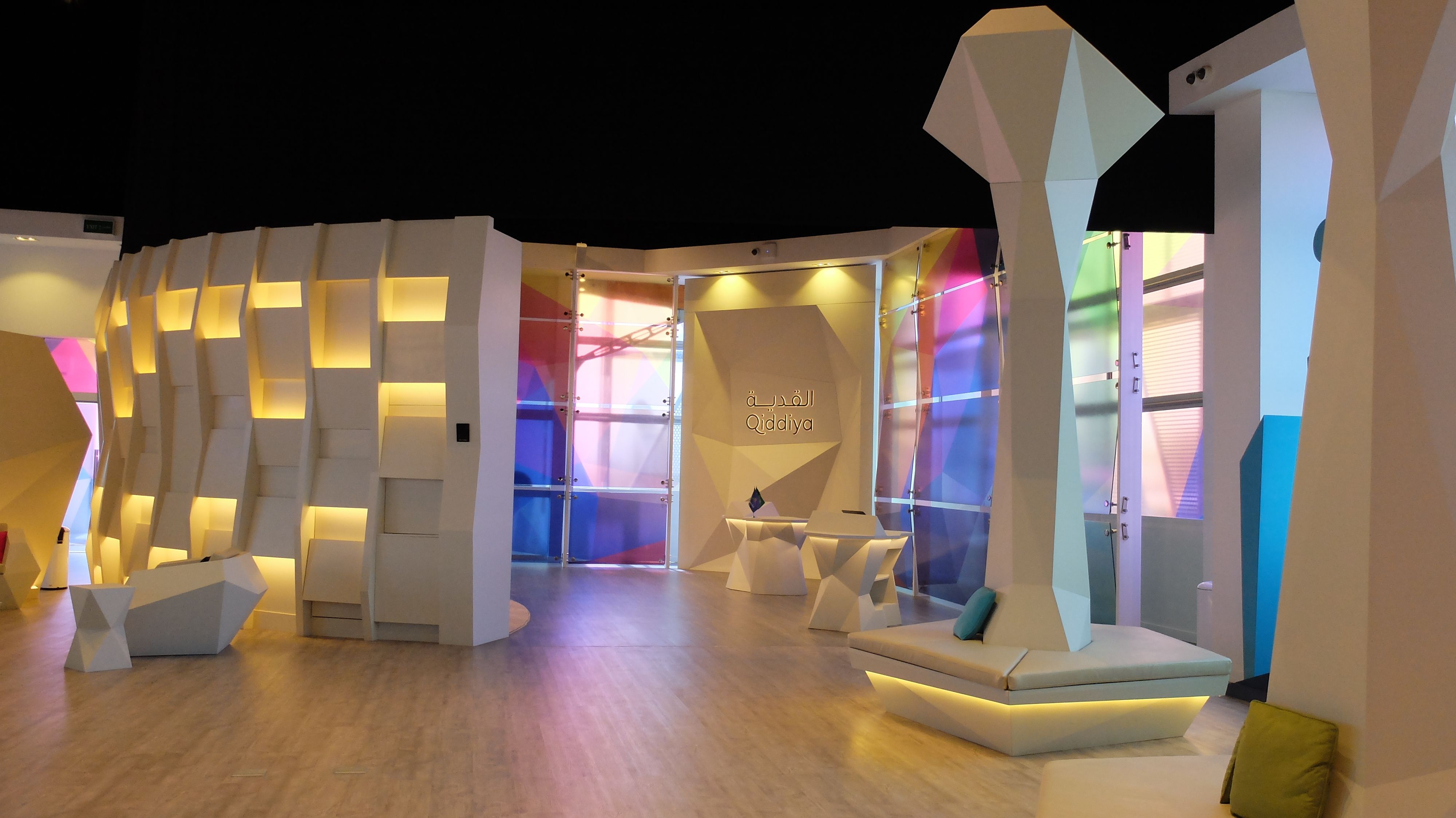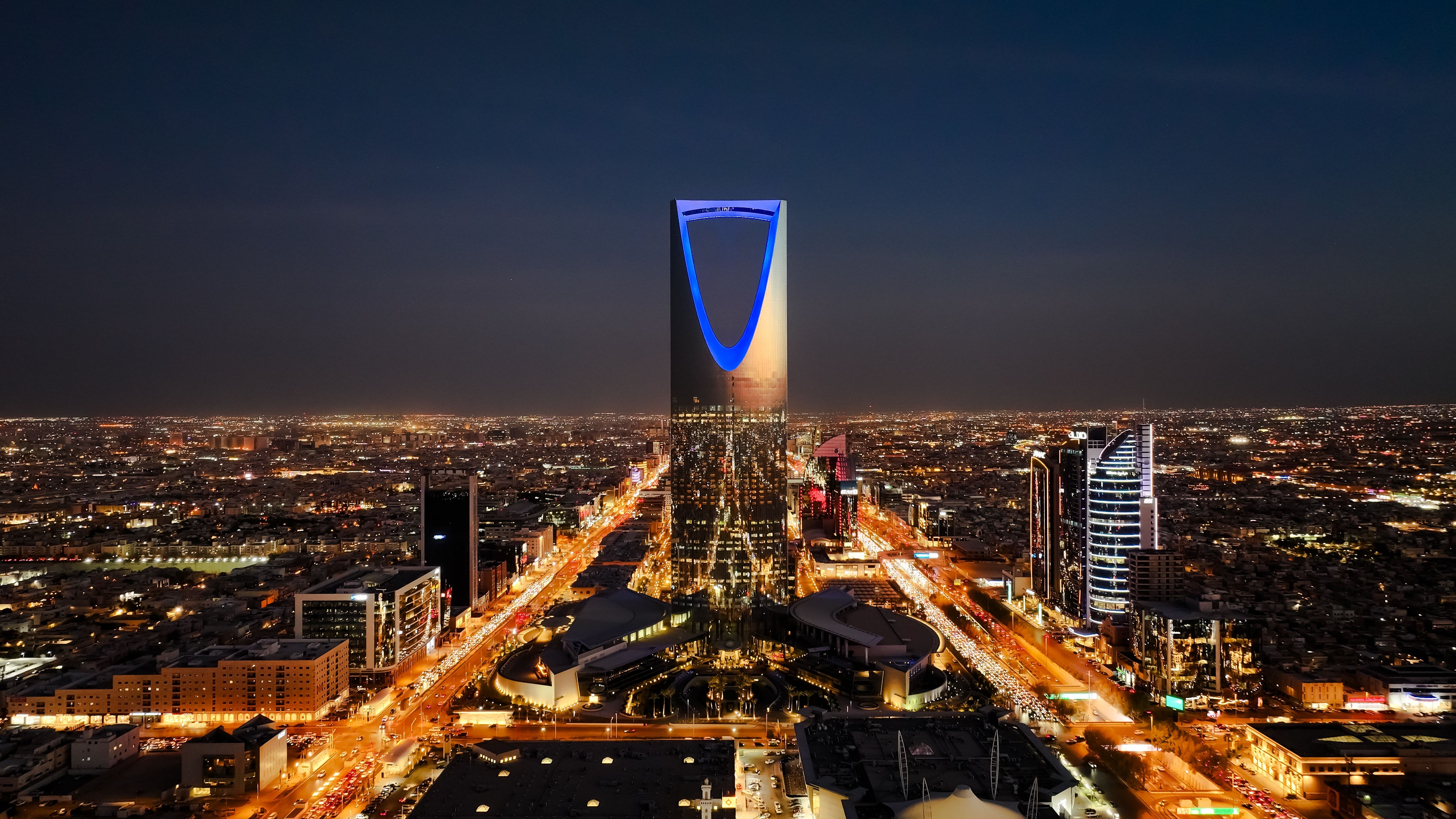
The Line, NEOM
Saudi Arabia’s megaprojects like NEOM, Qiddiya, and The Line are setting new global benchmarks for smart cities and the future of urban design. Ambitious in scale and innovation, these projects are exemplars of what can be achieved with a bold vision and the will and resources to deliver them.
Billed as redefining livability, business and conservation, NEOM’s unique location will provide residents with enhanced livability while protecting 95% of the surrounding natural landscape. The project is reimagining urbanism to be people-first and nature-friendly with protection, preservation and regeneration sitting at the core of NEOM’s model. NEOM also aims to be a global hub open for business. By building a future-oriented and sustainable economy, the project is pioneering new benchmarks for talent and enterprise and with a focus on connectivity, clean energy, advanced technology, education and R&D, NEOM is setting new standards for ease of doing business, with laws conducive to a vibrant economy and society.
Similarly, Qiddiya is a $9.8bn entertainment and tourism megaproject that aims to build destinations, programmes and initiatives based on the ‘power of play’ that will enhance the quality of life of visitors and residents. The Line, another key part of Saudi Arabia’s Vision 2030, is a linear smart city being developed as part of the NEOM project. Envisioned as a 170km-long, 500m tall and 200m wide structure, designed to house nine million people in a car-free, zero-carbon environment, the project is set to be a hub for innovation and a model for sustainable urban living.
Across its 170 kilometres, The Line will stretch from the epic mountains of NEOM across inspirational desert valleys to the stunning Red Sea. A mirrored architectural masterpiece towering 500 meters above sea level, but a land-saving 200 metres wide, The Line is redefining the concept of urban development and what cities of the future will look like. With no roads, cars or emissions, it will run on 100% renewable energy and 95% of land will be preserved for nature. People’s health and wellbeing will be prioritised over transportation and infrastructure, unlike traditional cities. This will mean a reduced infrastructure footprint, creating never-before-seen efficiencies in city functions. An ideal climate all year round will ensure that residents can enjoy the surrounding nature as well as having access to all daily essentials within a five-minute walk, in addition to high-speed rail, with an end-to-end transit of just 20 minutes.
It’s little wonder why megaprojects like NEOM, Qiddiya, and The Line are being seen as real examples to follow for urban design and enhanced living. All three projects are central to Saudi Arabia’s efforts to implement government-led strategies, like the Saudi Green Initiative and Vision 2030, to create clean, connected and inclusive cities. All these initiatives focus on sustainable urban development, incorporating technology, renewable energy and innovative urban design to improve living standards and create future-ready environments.

Qiddiya
Also important is the Future Saudi Cities Programme, a joint programme developed by the Saudi Ministry of Municipal and Rural Affairs (MoMRA) and UN-Habitat, implemented in close cooperation with the municipalities of 17 major Saudi cities. The cities have been selected based on their different population sizes, geographic distribution and a range of criteria based on capacities and economic potential to create a more balanced regional development among the cities of Saudi Arabia. The chosen cities include Riyadh, Makkah, Jeddah, Taif, Madinah, Tabuk, Dammam, Qatif, Al-Ahsa, Abha, Najran, Jazan, Hael, Arar, Al Baha, Buraidah and Skaka.
Saudi Arabia is making significant strides in urban development through its smart city development initiatives, aiming to transform its cities into high-tech, sustainable urban environments. This move is in total alignment with the Vision 2030 plan, which seeks to diversify the economy and reduce dependence on oil. Key projects across the kingdom, like those mentioned above, are showcasing the potential of smart cities to enhance the quality of urban living through technological advancements and innovative planning.
At the core of Saudi Arabia’s smart cities are advanced technologies that enhance urban living. AI and IoT play crucial roles in managing city infrastructure, from traffic control to energy management. AI-powered analytics provide real-time data that help city planners make informed decisions, while IoT devices connect various elements of the city, creating a cohesive and responsive urban ecosystem.

The Kingdom Tower, Riyadh
Moreover, renewable energy integration is a key component of smart city initiatives. Solar and wind energy projects are being incorporated into the city’s power grid, reducing reliance on fossil fuels and lowering carbon emissions. These renewable energy sources not only contribute to environmental sustainability but also provide a stable and cost-effective power supply for urban areas.
Smart transportation systems are also another critical aspect of these developments. Autonomous vehicles, intelligent traffic management and integrated public transport networks are being designed to reduce congestion, improve safety and enhance the overall efficiency of urban mobility. These systems leverage real-time data and predictive analytics to optimise traffic flow and provide seamless connectivity across the city.
By setting new standards and global benchmarks for the future of urban design, Saudi Arabia and the MENA region provide an ideal showcase for highlighting the action, progress and solutions that will be needed to build the sustainable economy and society and future-ready infrastructure of tomorrow. All this is happening now and will be on show at Innovation Zero MENA in October – for all those working on accelerating the transition to a low emission economy, there’s never been a better time to visit the region.
Innovation Zero MENA Congress takes place on 14-15 October 2025 in Misk City, Riyadh, Saudi Arabia. Find out more at www.innovationzero.com/mena-congress


